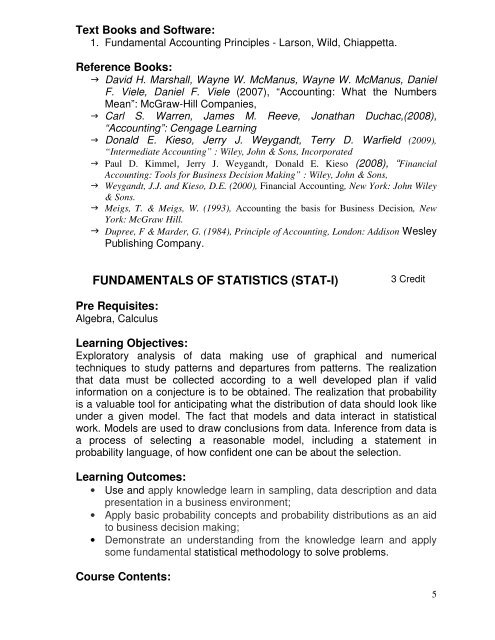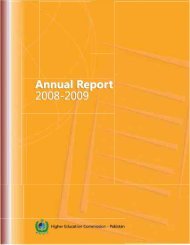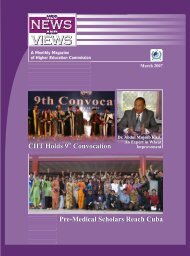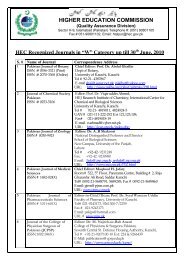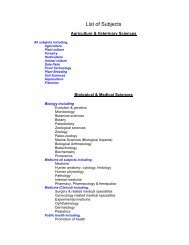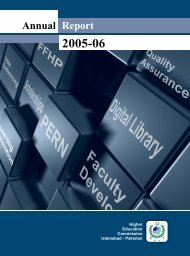Public Administration - Higher Education Commission
Public Administration - Higher Education Commission
Public Administration - Higher Education Commission
You also want an ePaper? Increase the reach of your titles
YUMPU automatically turns print PDFs into web optimized ePapers that Google loves.
Text Books and Software:<br />
1. Fundamental Accounting Principles - Larson, Wild, Chiappetta.<br />
Reference Books:<br />
David H. Marshall, Wayne W. McManus, Wayne W. McManus, Daniel<br />
F. Viele, Daniel F. Viele (2007), “Accounting: What the Numbers<br />
Mean”: McGraw-Hill Companies,<br />
Carl S. Warren, James M. Reeve, Jonathan Duchac,(2008),<br />
“Accounting”: Cengage Learning<br />
Donald E. Kieso, Jerry J. Weygandt, Terry D. Warfield (2009),<br />
“Intermediate Accounting” : Wiley, John & Sons, Incorporated<br />
Paul D. Kimmel, Jerry J. Weygandt, Donald E. Kieso (2008), “Financial<br />
Accounting: Tools for Business Decision Making” : Wiley, John & Sons,<br />
Weygandt, J.J. and Kieso, D.E. (2000), Financial Accounting, New York: John Wiley<br />
& Sons.<br />
Meigs, T. & Meigs, W. (1993), Accounting the basis for Business Decision, New<br />
York: McGraw Hill.<br />
Dupree, F & Marder, G. (1984), Principle of Accounting, London: Addison Wesley<br />
Publishing Company.<br />
FUNDAMENTALS OF STATISTICS (STAT-I)<br />
3 Credit<br />
Pre Requisites:<br />
Algebra, Calculus<br />
Learning Objectives:<br />
Exploratory analysis of data making use of graphical and numerical<br />
techniques to study patterns and departures from patterns. The realization<br />
that data must be collected according to a well developed plan if valid<br />
information on a conjecture is to be obtained. The realization that probability<br />
is a valuable tool for anticipating what the distribution of data should look like<br />
under a given model. The fact that models and data interact in statistical<br />
work. Models are used to draw conclusions from data. Inference from data is<br />
a process of selecting a reasonable model, including a statement in<br />
probability language, of how confident one can be about the selection.<br />
Learning Outcomes:<br />
• Use and apply knowledge learn in sampling, data description and data<br />
presentation in a business environment;<br />
• Apply basic probability concepts and probability distributions as an aid<br />
to business decision making;<br />
• Demonstrate an understanding from the knowledge learn and apply<br />
some fundamental statistical methodology to solve problems.<br />
Course Contents:<br />
5


